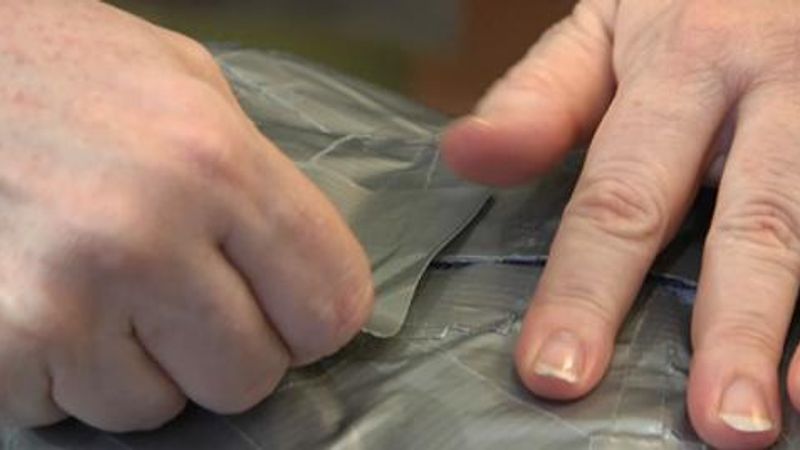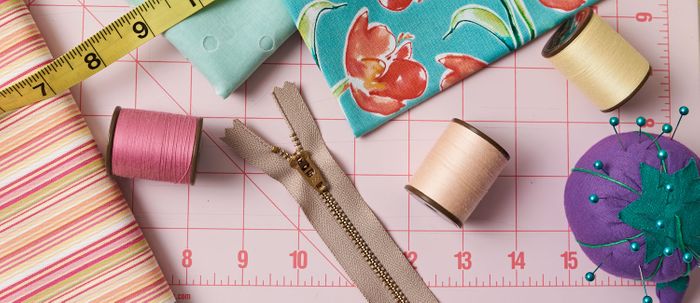
In this video series Part 2 by Threads, Judith Neukam shows how to finish a duct-tape dress form and add a floor stand.
A dress form is a boon to any sewer. A dress form can be a place to test garment fit, the placement of embellishments, and support garment sections when you align them for basting. When you make a dress form, you also have the benefit of it being a custom fit double.
A dress form can be a hefty investment, however. What’s more, if you are sewing primarily for yourself, a better option might be to make a dress form that follows the contours of your own body.
The solution may very well be a homemade dress form. This tutorial covers the final steps to make a dress form with duct tape. Watch part one of this dress form tutorial to see the materials you need and the process. Enlist a friend to help you make your own customized duct-tape dress form.
Once you’ve finished this process to make a dress form, you can use it for years to come. You can also watch another video to learn how to draft and sew arms for your dress form.
This detailed tutorial is one video in the comprehensive Teach Yourself to Sew series.
Teach Yourself to Sew
Judith got her first taste of sewing when she took the free lessons that came with her mother’s sewing machine purchase. Judith was 9 at the time. Soon after, she was sewing her own clothes and feeding her passion for the craft. In her Teach Yourself to Sew series, Judith shares her enduring love of sewing and her invaluable years of sewing experience.
Getting started
She starts with discussing the equipment and the essential sewing notions for anyone who sews. You’ll learn about shopping for fabrics, choosing patterns (including selecting the correct size), and planning the perfect pattern layout. From machine-sewing simple seams to inserting zippers and stitching buttonholes, Judith demonstrates the key steps to making a custom garment.
Discover methods for clean-finishing seam allowances and applying facings so all edges are neat. To add shape to garments, Judith explains how and why to sew darts, and how to gather fabric for volume. Other garment elements, such as sleeves, pockets, and elasticized waistbands, are shown in easy-to-follow video tutorials.
Advancing your skills
When you’re ready to challenge yourself further, tune in to Judith’s overview of couture garments and sewing techniques. Even if you never intend to become the next Coco Chanel, you’ll learn methods that add quality to your everyday wardrobe. Find out how to perfectly match stripes, plaids, and prints; baste seams; and insert underlinings and linings.
Finally, Judith shares the basics of pattern fitting and adjustment. Her method begins at the shoulders, ensuring the garment hangs properly. Follow along as Judith shows how to create a shoulder template that you can use again and again to adjust patterns before cutting the fabric. As a bonus, you’ll even learn how to create a custom dress form so you can fit garments on a body that truly represents your true body shape.






A PDF instruction sheet of this would make it really useful.